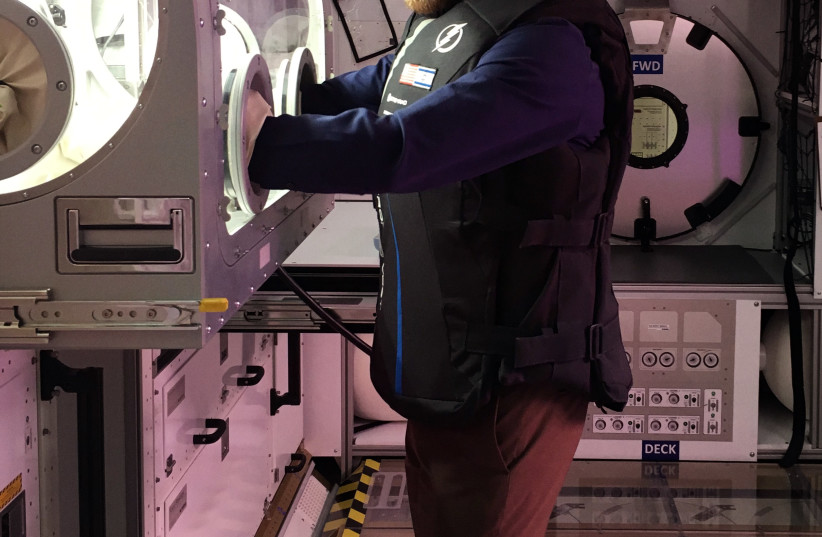Even in outer space, Israelis are inspiring others to make the world a better place.
Astronauts joining Israeli representative Eytan Stibbe on their ground-breaking Rakia mission to the International Space Station next February have committed to run similar tests in space that Stibbe initiated.
A year after former Israel Air Force pilot and businessman Stibbe announced his intention to join the first fully private mission to ever visit the ISS, Axiom Space, the company organizing the flight, said at least 25 experiments will be conducted in space, requiring over 100 hours of research work conducted by the astronauts.
The Axiom Mission 1 (Ax-1) is expected to set a world record for the most experiments ever performed on the ISS in one week. It is believed that Stibbe, who has spent the past several months training for the voyage with the other crew members, led the others to also volunteer for research projects.
In May, Stibbe, in conjunction with the Science and Technology Ministry and the Ramon Foundation, announced that they had chosen 44 experiments designed by Israeli start-ups, universities and hospitals, using the microgravity environment in space to test conditions that may lead to technological, scientific and medical breakthroughs that will influence human life on earth – and perhaps beyond.

Not all of those experiments were approved by Axiom and NASA, but Stibbe expects that more permissions will be granted by the time of the flight.
The 10-day space mission, which includes two days of travel to and from the ISS, will be led by Axiom’s Michael López-Alegría as commander. The crew will consist of Stibbe, American entrepreneur and nonprofit activist investor Larry Connor, and Canadian investor and philanthropist Mark Pathy.
The four of them will live for eight days on the ISS, a football field-sized vessel located 250 miles above earth that orbits the planet at 17,000 miles per hour, or once every 90 minutes. Stibbe, Connor and Pathy each paid some $50 million of their own money to take part in the February 2022 mission.
Connor’s experiments on behalf of Mayo Clinic and the Cleveland Clinic will provide data on space travel’s impact on heart health and spinal and brain tissue.
Pathy will represent six Canadian universities and two tech start-ups for a number of medical and Earth observation experiments, including the world’s first in-space demonstration of two-way holoportation – a mixed reality app for special lenses that receive two-way 3D projections as a hologram to communicate between users remotely.
Stibbe will run a bevy of tests from diverse disciplines such as astrophysics, agriculture, optics, communication, biology, healthcare, neurology and ophthalmology, representing many of Israel’s leading universities and hospitals.
Stibbe, 63, is a former fighter pilot and businessman. In the 1982 Lebanon War, he gained IDF recognition when he shot down four enemy aircraft during a single sortie.
As an entrepreneur, Stibbe has more than 30 years of experience developing infrastructure projects in Africa and making impact investments in developing markets.
Stibbe’s commander in the IAF was Ilan Ramon, who in 2003 became the first Israeli to fly in space. Tragically, Ramon was killed when his Columbia mission was destroyed upon reentering Earth after the historic NASA flight.
The Ramon Foundation, founded in his honor, is leading Stibbe’s space trip, which Stibbe dedicated to the memory of his former commander.
The Israeli mission title, “Rakia,” is a Hebrew word for heaven, and was the title of the book published with the fragments of Ramon’s diary, which was excavated from the crash.
Axiom is leading the nascent market for private commercial space flights, and plans to build its own private space station as a hub for future space tourism.
“We applaud the Ax-1 crew’s commitment to advancing scientific inquiry and kicking off this civilizational leap,” said Michael Suffredini, president and CEO of Axiom Space.
“We’re confident this mission will become not just a monumental moment in space travel, but the true beginning of making space’s potential for meaningful discovery available to private citizens and organizations for the first time.”
